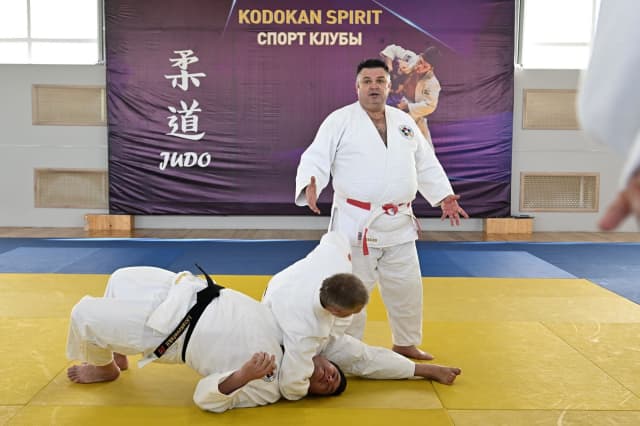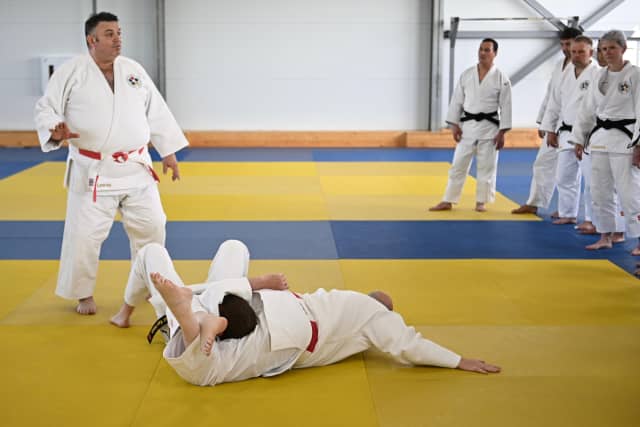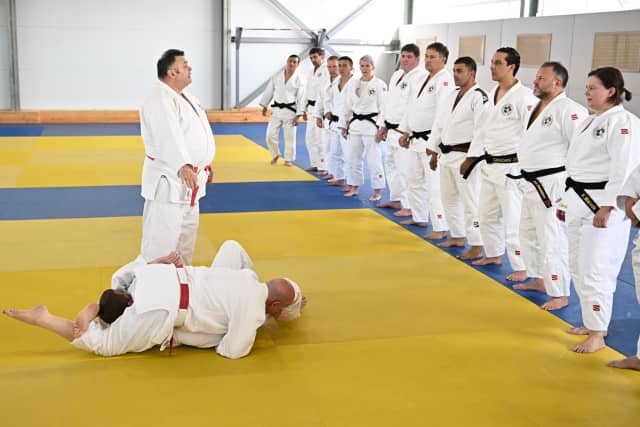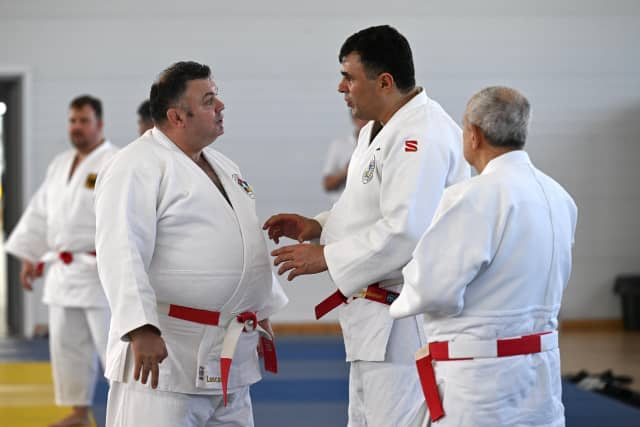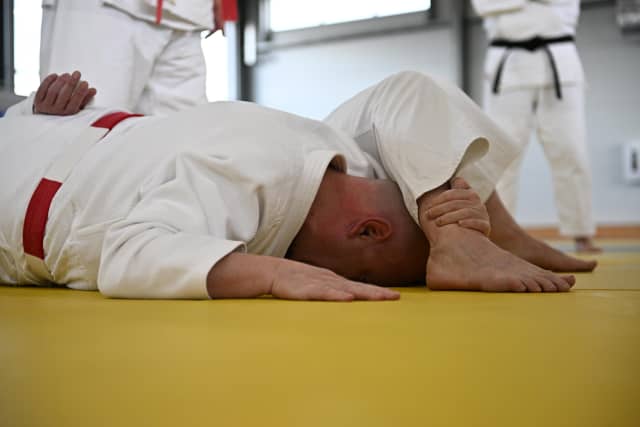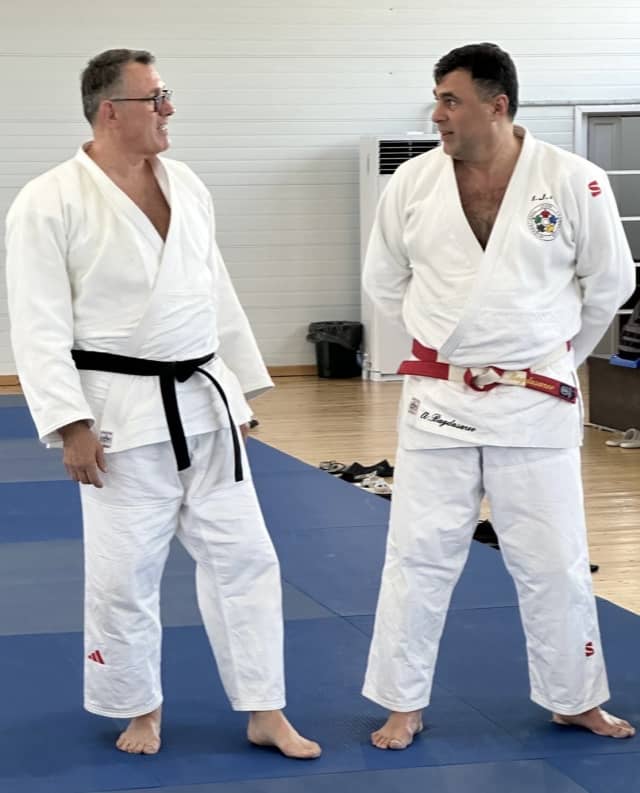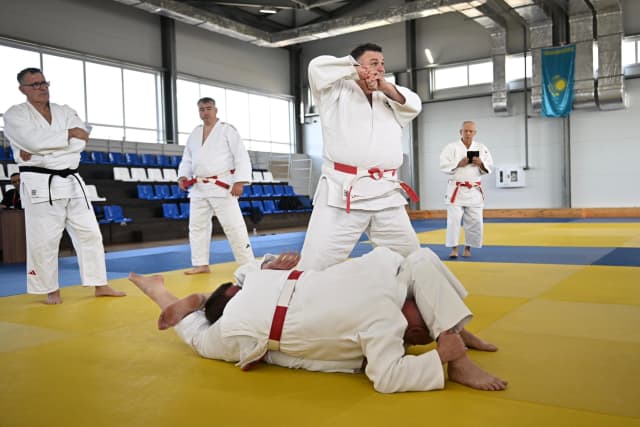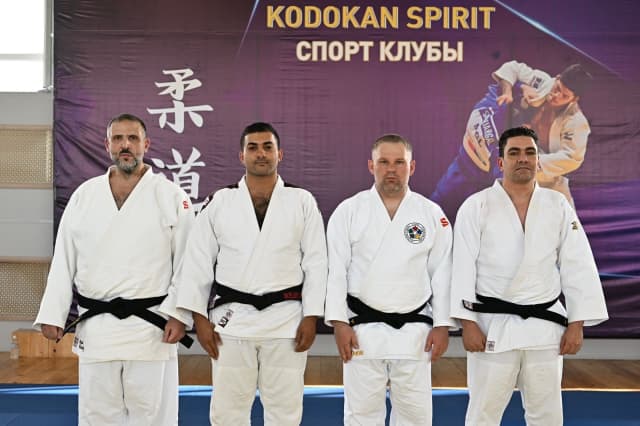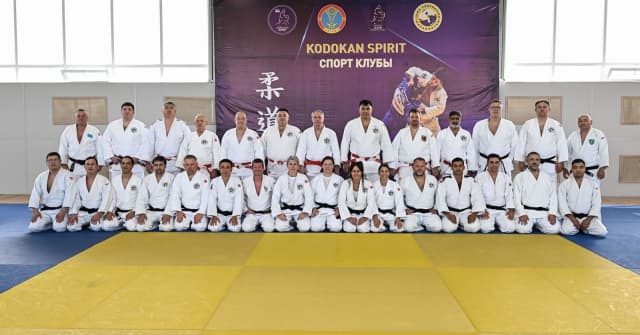To understand the rules may seem like a basic mission, especially for the best referees in the world, when we consider how many years they have each been involved in the sport. The reality is nuanced though as the rules have to be adapted to meet the creativity of coaches and athletes, to respond to any and all medical guidance and to ensure that the evolution of the sport is encouraged always with a foundation of tradition and respect. With each of these elements under constant review, the role of the referees and the referee directors is clearly more complicated than it appears at first glance.
One area being discussed in Astana was the many variations of sankaku entries for osaekomi-waza and assessing exactly when a position can be considered for the ‘osaekomi’ call.
Head Referee Director Florin Daniel Lascau said, “Reducing the grey area of confusion when tori is using sankaku as the starting position, not looking for shime-waza or kansetsu-waza but for the kuzure-kami-shiho-gatame, this is something we must clarify.”
The referees experimented with several different positions and discussed the validity of each, coming to a clear, shared understanding by the end of the session. In the coming weeks, each position and the related, tiny details will be discussed with Kodokan experts to ensure clarity and a universal, well-communicated set of rules around osaekomi is understood, before the 2025 World Championships.
Stephane Traineau, Technical Director for China, in role for just a month having been the Technical Director for Kazakhstan for the last three years, added, “It is interesting to be here and to take part in these discussions. It’s important for all of us to continue learning throughout our judo careers. What I really like is that all discussions come back to technique. If judoka arrive on the mat with good judo technique, there is rarely any need to discuss penalties or hansoku-make.”
Aside from the technical aspects under discussion, the meeting in Astana was also an opportunity for the commission to welcome new referees to the World Judo Tour. Training and examination processes have become more aligned than ever in recent years, across all continents, and the commitment required is significant. To become a continental referee is difficult and to become a member of the A-team, an IJF referee, takes years of investment. It’s a huge step in the career of any referee to be invited to officiate on the World Judo Tour. In Kazakhstan Mohamed Elmtabes (LBA), Asim Alreedy (KSA), Denis Amelin (KAZ) and Maher Elgamal (EGY) have joined the group. Congratulations to them for reaching this milestone, although it also represents a new test, a new set of challenges.
The referees, supervisors and directors will be under scrutiny as the competition begins, this is always the case. Each contest will yield a winner and a loser, indicated by the referee but it is the rules which are king! Meetings, seminars, club training, national team training, coach education, all of it is aiming at the same thing: a shared understanding of the rules which govern the identification of judo excellence. The more everyone works together to create the picture, the more beautiful it will be.

